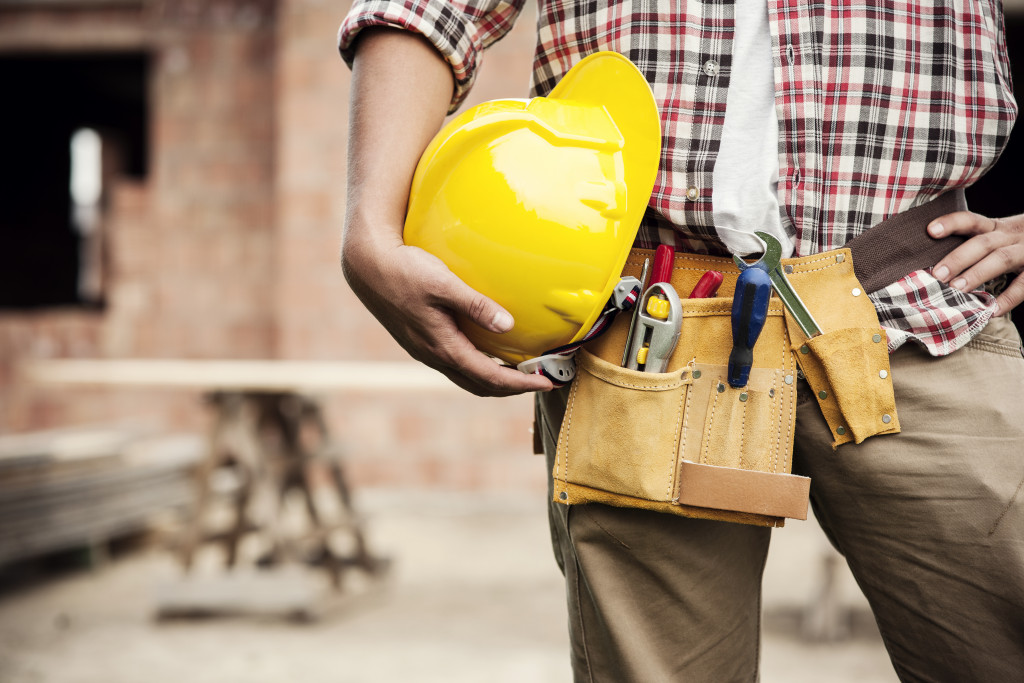You might’ve seen the rules put up somewhere or a similar set of guidelines created that draws from this. The bottom line here is that, since the pandemic struck, construction projects have been governed by strict rules meant to keep both the employees and management safe from the virus.
It’s not so simple to become a contractor during this time. Being a contractor means you’ve taken a licensure exam first before you are granted the license to take on projects as one. Now, while you have the license, you also need to ensure that you’re keeping things safe for everyone at the project site.
What works for most people today may not be what will work for most tomorrow. Here’s a measure of how you can make sure you’re doing all you can to follow the regulations and, at the same time, have the freedom to complete the project without any further hindrance.
Make sure the contract covers all bases
When you’re taking on projects during the pandemic, there are a lot of additional laws you have to be suddenly aware of. Some of these may or may not cover the welfare of your employees, while most would also cover for delays in the project.
If you can, you should take a contract then go into the office with your lawyer. Analyze your work agreements carefully, then go ahead and agree to the contract if you feel it sufficiently covers all bases. Just be mindful of the requirements of the project and what you need your people to do.
Afterward, keep the contract close by in case you need to refer to it again. Ensure that you include scenarios related to the current pandemic, other safety issues that may arise, and emergencies that may happen.
Be mindful of the local state of work
You should know which regulations are approved and which aren’t when you’re handling a project. If you have an idea of that—even basically—you’re good to anticipate whatever might happen if you’re working.
You should also have an idea of what questions to ask if you plan to continue work or not. Can your employees drive to work? Do they have problems wherever they’re living? Knowing these and planning properly for them can drive your productivity and profits into where you want them to be.
If you have to, contact your lawyer, or consult your contract on what to do if there’s a sudden stoppage of work again due to the pandemic.
Know your professional obligations

The nightmare scenario will be if someone gets infected on the worksite. If so, you should know how to cover their professional fees and take care of the necessary obligations you have to them.
If one of your workers contracts the virus, you should know where they worked and whether they were in contact with anyone else. You should take this case seriously and help them get back on their feet.
As for the clients in your worksite, have them set up for tests to determine whether they’re healthy enough or they were exposed as well. Prepare a notice and make sure everyone knows what happened so that they’re prepared in case they should also go in to have themselves tested.
Be mindful of the provisions for public health
The CDC issued the Public Health Service (PHS) Act to take care of the legal laws for responding to public emergencies, such as when a worker suddenly falls ill to COVID-19.
In such a case, you should cooperate with the authorities if they’ve got jurisdiction in your local site. If a public health emergency is declared on your site, follow the protocols to control the spread of the virus. The CDC should be the point person in what you should do in case your worksite is deemed viral.
Know what to do in case of quarantine and isolation protocols
You should also know who declares the state of emergency. In such cases, a chief executive (the President or a similar role) can declare such emergencies.
If COVID-19 is indeed present in your worksite, you should coordinate with the Secretary of the US Department of Health and Human Services (HHS) as the point person. Work with them to ensure that the virus stays contained and doesn’t spread to any other places.
Being a contractor is hard work, and COVID-19 is making things even more complicated. What you should do is to make sure you have a good grasp on the prevailing laws so that you stay on top of things.











